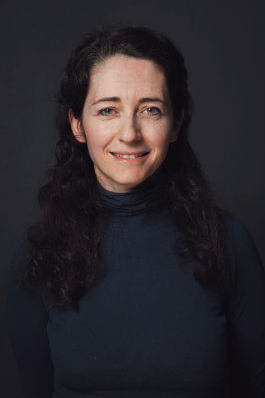NCMM group leader, Sandra Lopez-Aviles, appointed as an Associate Professor at the University of Oslo
NCMM congratulates Dr. Lopez-Aviles, who will join the Department of Biosciences (IBV), UiO, in December 2021.

Dr. Sandra Lopez-Aviles has been head of the Cell Cycle Regulations group at NCMM since 2011. After her first 5-year period, she was externally evaluated and renewed for a second period from 2017. Like other nodes in the Nordic EMBL Partnership, NCMM follows the EMBL model for recruitment, where the Centre’s group leaders are recruited for 5+4 year contracts with mid-term review, meaning they must rotate out of NCMM upon completing the second stage of their group leader role. The NCMM model aims to attract the brightest and the best young researchers to Norway, thereby benefitting both NCMM and UiO and the Nordics as a whole. Thus, NCMM serves as a greenhouse for young talented researchers that after their group leader period at the Centre, should be attractive candidates for permanent positions around Norway.
Here, Dr. Lopez-Aviles describes her new role at IBV and how she has found her time at NCMM.
Can you describe your new role?
I will start as an Associate Professor at IBV (Department of Biosciences) at the University of Oslo on 1 December 2021. Whilst I’ll be responsible for more teaching than I have been in my current role as NCMM group leader, I’ll be able to continue with the research that I have built up over the last nine years.
What are you most looking forward to?
The stability of having a permanent professorship is something I’m looking forward to, it will be very nice to know that I don’t have to go through evaluation and renewal process, like the past nine years. The teaching aspect of the role is also something I’m looking forward to. I’ve previously taught Advanced Cell Biology, which tends to come at the end of the Bachelor programme, and I’ll now be able to do this as well as teach some courses earlier on in the programme. I’m also looking forward to being part of a bigger basic research environment. IBV has a lot more scientists working with basic research so, whilst my focus might be a bit different, I will have lots in common with the other researchers there.
Where are you planning to take your research next?
We’ve worked hard as a group over the last nine years and so I’ll aim to continue what we started at NCMM. I’ll continue to concentrate on cell signalling and cell cycle progression, as well as gene programmes and transcription. In terms of my group, Marina (Portantier, researcher) will come with me, and we will also hire a PhD student and, eventually, I hope to recruit several Master students.
How was the experience of being a group leader at NCMM?
NCMM offered me a great start. The generous startup package meant that I could have a lot of freedom to develop my research programme and grow my group as I wished. It was certainly overwhelming at the start, however, as coming straight from a postdoc to being a group leader is a big change. It’s certainly been a steep learning curve. However, it’s been a wonderful opportunity, and I’ve been able to get to know many great researchers through my time at NCMM. It was also very positive to be in the same position as other new group leaders who started at the same time as me. We were all in the same position and so naturally supported one another. Finally, I am also grateful to the NCMM administration team who always made things run very smoothly; I always felt very supported here.
What have been the highlights from your time at NCMM?
There have been some very nice moments over the years. Having papers accepted and hearing that I have been awarded grants have made for some really great moments that I’ve been able to share with my group. As I mentioned previously, I think it was good that several of us started as new group leaders at the same time. It’s been exciting to see how each of their groups has grown and progressed, as well as feel like many of us were in the same boat and experiencing the ups and downs that come with being a researcher together.
How do you consider the ‘EMBL model’ of 5+4 years with review?
In my case, the model worked well. After my time at NCMM, I will rotate out to a permanent position at the University of Oslo. However, it’s of course been challenging and stressful at times as it’s never certain that you will secure a permanent position. It certainly is tough when you are from outside of Norway and perhaps find that the community is quite small and difficult to break into.
How do you think NCMM could better support group leaders with securing permanent professor positions at universities in Norway?
I think it’s important that the university is part of the group leader hiring process, or at least they get to know group leaders from the start of their time at NCMM. That way, they’re able to see what kind of roles NCMM is recruiting for and identify how these candidates might fit with them in the future. This might then help with a smoother and more natural transition to securing a permanent role within the university. I think this has improved in recent years; several of the NCMM group leaders are already integrated into UiO departments and I think this can only be a positive thing for the future.